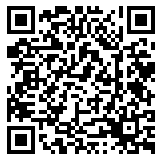I contend that surprise occurs when someone experiences a state of affairs contrary to their noetic framework. An easy example would be when evil clown appears before you and you shit your pants in surprise.
A great many of our entertainment dramas play off of this reality. Coming-of-age flicks like “My Girl”, feel-good dramas like “Gran Torino”, horror films like “Alien”, etc. all demonstrate or a assume the audience or protagonist's belief structure and proceed to to surprise the audience and protagonist over the course of two-ish hours. Showing the protagonist and audience that the world (either the real one, or the fictional one which is the center of attention) doesn't work the way they thought it does is pretty much the singular impetus of the plot.
But, why should someone care about surprise? Well, as it turns out, it took me about two years to come up with an answer to that question. I was surprised when presenting this idea to my wife... she got mad at me, which was unexpected. It turns out, two years ago she brought this idea to my attention, but I couldn't find a place in my worldview that could be enriched by such a line of questioning... and so I forgot the conversation altogether. </anecdote>
You may laugh, but my newly-realized reason for caring about surprise is an ethical one. As any poor soul still reading this post ought to know, I am a virtue ethicist. What does surprise have to do with human flourishing, though? Well the connections are twofold.
Firstly, Surprise is an opportunity for discipline. When one is surprised, as I already explained, it's because they are faced with a reality that is distinct from the one in their head. In science, this is called a “discovery” or “falsification” (in my under-caffeinated state, I can't remember what exactly the rubric is for declaring something a “discovery”). In a horror movie, it's called “being dead”. What it really is, though, is an opportunity to correct one's beliefs and resultant behavior.
For example, if one consistently wins at a competition of skill (ie. chess, first person shooters, martial arts, etc.) and is surprised by a loss, it is an opportunity for them to fill whatever blind spot they had. With a demonstrably superior physique or mind, there must be a blind-spot in their knowledge of their particular sport. After a surprise loss, they can survey the playing field and actions of their opponent with a new perspective, analyzing which implicit beliefs they held which resulted in their loss. Another example would be if one is surprised by a bed full of spiders, they are given the opportunity to incorporate that knowledge and develop the habit of checking their bed before staggering in and collapsing in a drunken heap. Maybe, they could even discern the cause for a bed full of spiders and develop habits which prevent such a possibility in the first place.
I used to be surprised quite frequently in my younger years, probably due to the fact tat I was an immature insufferable know-it-all. Nowadays, I am pleasantly surprised at the rare occasion of surprise in my life. This brings me to the second reason a virtue ethicist would be concerned about the nature of surprise; surprise can serve as an excellent self-diagnostic tool. The frequency and trends of a person's surprise can express to the surprisee their general attitudes and their epistemic strengths and weaknesses. This, again is divided in two ways: determining the cause for one's lack of surprises and revealing epistemic blind-spots. In the case of lack of surprise, I can think of three reasons one would be infrequently surprised:
- They have an unusually accurate worldview, resulting in few instances where they would be surprised by inaccuracies
- They are a Taoist sage, with a certain expectation of epistemic inaccuracy built into their worldview, “It's not surprising that I was wrong, as I am always wrong” or, alternatively, “I hold no beliefs... so none of my beliefs can be shown false.”
- Or, this person could just be a total jerk. “I knew that all along”, “Did I just think of that? I had to have... because I am the greatest”, “That can't be an evil clown standing in front of me... because I didn't predict that it was possible.”
The second useful diagnostic tool that surprise provides us with is one of trends. If someone is frequently surprised by similar things, for instance that people around them are smarter than one thinks, they are likely to have an implicit belief that everyone around them is an idiot. Alternatively, if one is consistently surprised that the guy they are dating is a jerk, maybe they have an implicit set of beliefs that gives them a poor taste in men. These can also be positive surprises. An example would be if a shy person with low self-esteem presents a rare idea to a group and the idea is surprisingly well-received, then there is likely a set of implicit beliefs that leads the shy individual to underestimate their own intelligence.
By keeping a record of one's surprises, they are more likely to find the appropriate fine-tuning of their behaviors and worldview in order to flourish. As always, knowing oneself is most of the battle when virtue is concerned, and surprise can be a valuable asset in the discovery of oneself.


 RSS Feed
RSS Feed
